Prevent corruption from the root to strengthen people's trust
The National Assembly Deputies of Group 6 believe that this amendment to the Law is not only to perfect legislative techniques, but also to strengthen the people's trust in the political determination of the Party and State in preventing and combating corruption and negativity - ensuring the cleanliness of the apparatus and the trust of voters. However, some regulations need to be reviewed and specified more clearly to ensure transparency and feasibility.
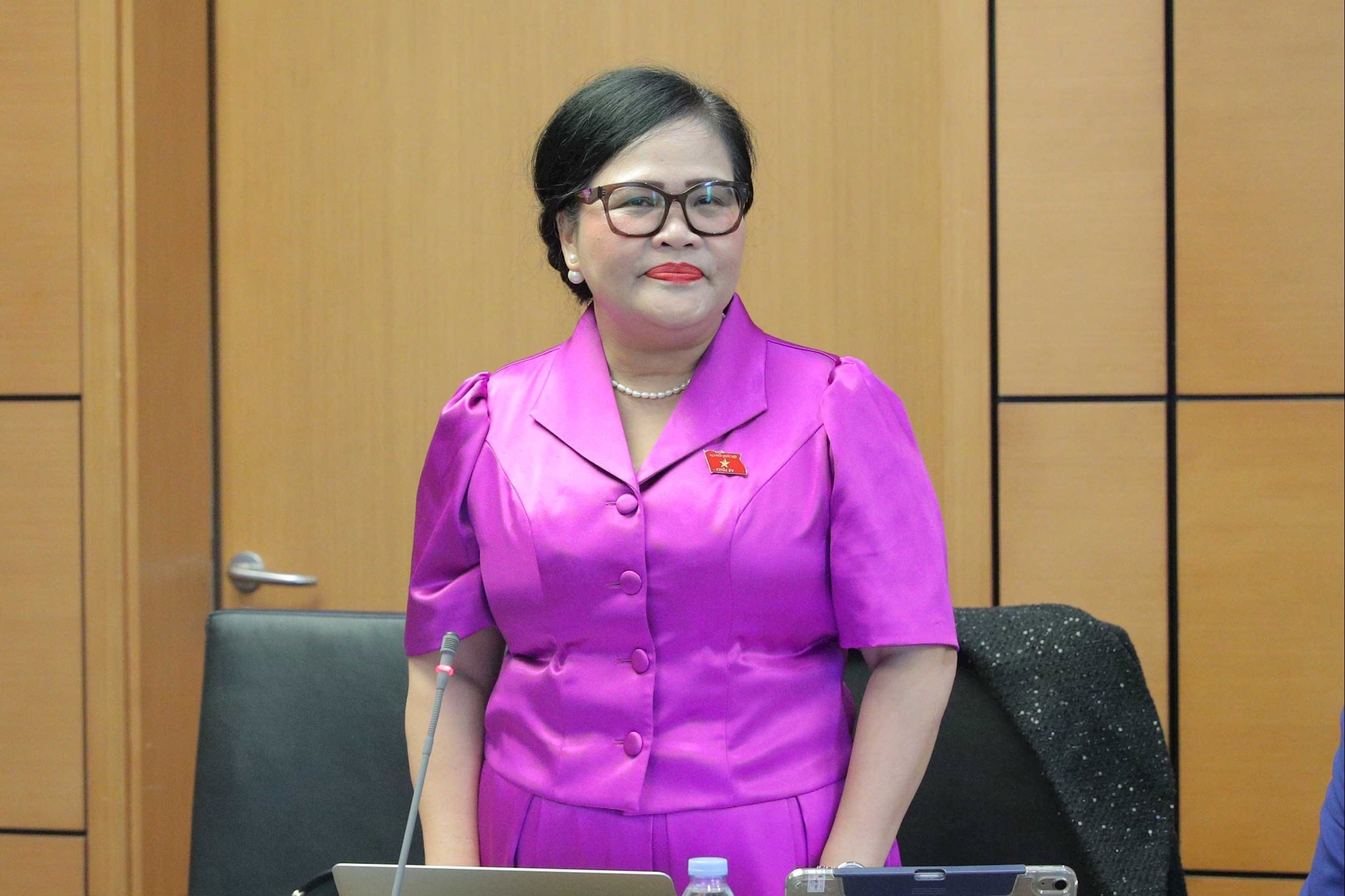
According to National Assembly Deputy Nguyen Thi Suu (Hue City), although the current Law has many progressive provisions, practice shows that there are still gaps in controlling conflicts of interest, transparency of assets, income and responsibilities of leaders. Accordingly, the delegate suggested that the drafting agency should review and clarify the concept of "conflict of interest" to ensure feasibility and avoid the situation of "both playing football and blowing the whistle" in the performance of public duties.
Regarding transparency of assets and income, delegates said that electronic declaration and public disclosure of verification results is a suitable direction, but it is necessary to add regulations to ensure the security of personal information and accountability when there are unusual differences. "Declaration must be substantial, not just a formality; more importantly, there must be an independent monitoring mechanism and data connection to detect signs of irregularity," delegates emphasized.
National Assembly Deputy Nguyen Thi Suu also noted the responsibility to set an example and handle leaders when corruption and negativity occur in agencies and units. The delegate said that it is necessary to have more specific regulations on criteria for assessing the level of violations, clearly defining administrative, disciplinary and criminal responsibilities to avoid "gray areas" in handling.
In addition, delegates proposed strengthening the mechanism of power control through publicity, transparency and accountability of officials and civil servants; at the same time, closely linking anti-corruption work with digital transformation and administrative reform. According to delegates, applying technology in budget monitoring, bidding and public investment will be an effective tool to help minimize opportunities for corruption.
Regarding the coordination mechanism, the delegate said it is necessary to clarify the leading role of the Government Inspectorate and the participation of the Vietnam Fatherland Front, socio-political organizations, and press agencies in monitoring and social criticism on corruption prevention and control. “Not only handling, but more importantly, building a culture of integrity among cadres and civil servants,” the delegate emphasized.
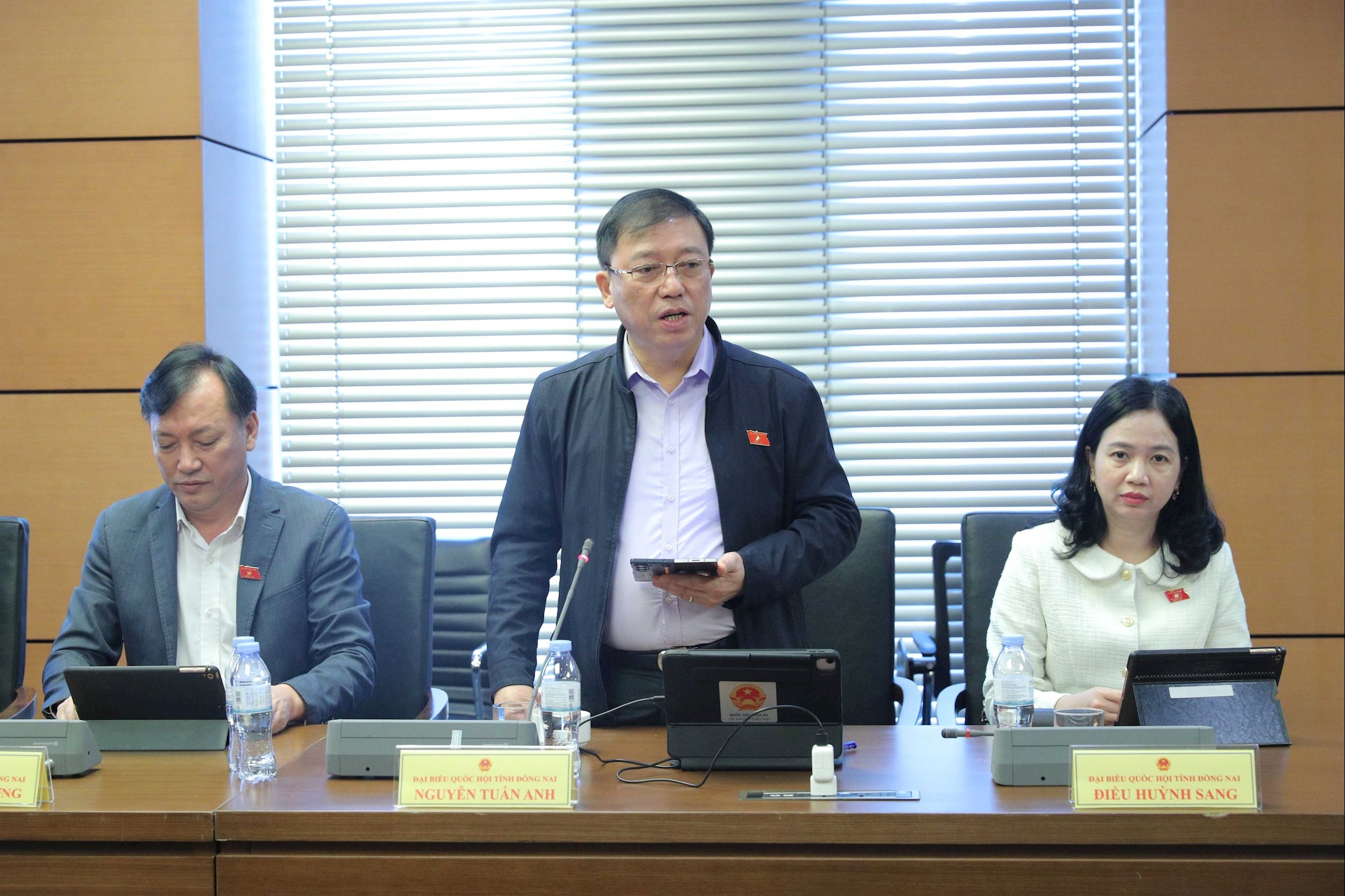
Agreeing with the above opinion, some National Assembly deputies also said that amending the Law on Anti-Corruption is very necessary, a basic step, limiting shortcomings, and resolving concerns of party members and people. However, because the current declaration procedure is quite cumbersome and time-consuming for the asset control agency, but the actual results are not high, even "incorrect asset declarations" still occur, it is recommended that the drafting committee carefully review the provisions, specify more regulations on asset declaration, as well as apply technology in supervision to effectively and substantially prevent corruption.
More specific regulations on asset declaration to ensure transparency and feasibility
Commenting on Clause 1, Point a, Article 35 of the draft Law amending and supplementing a number of articles of the Law on Anti-Corruption, National Assembly Deputy Phan Viet Luong (Dong Nai) considered this a step to improve, clarify and be more specific in the scope of assets that must be declared. However, expressing concern about the next set of regulations: "construction works and other assets attached to land, houses, construction works" , the delegate said that this expression is not clear.
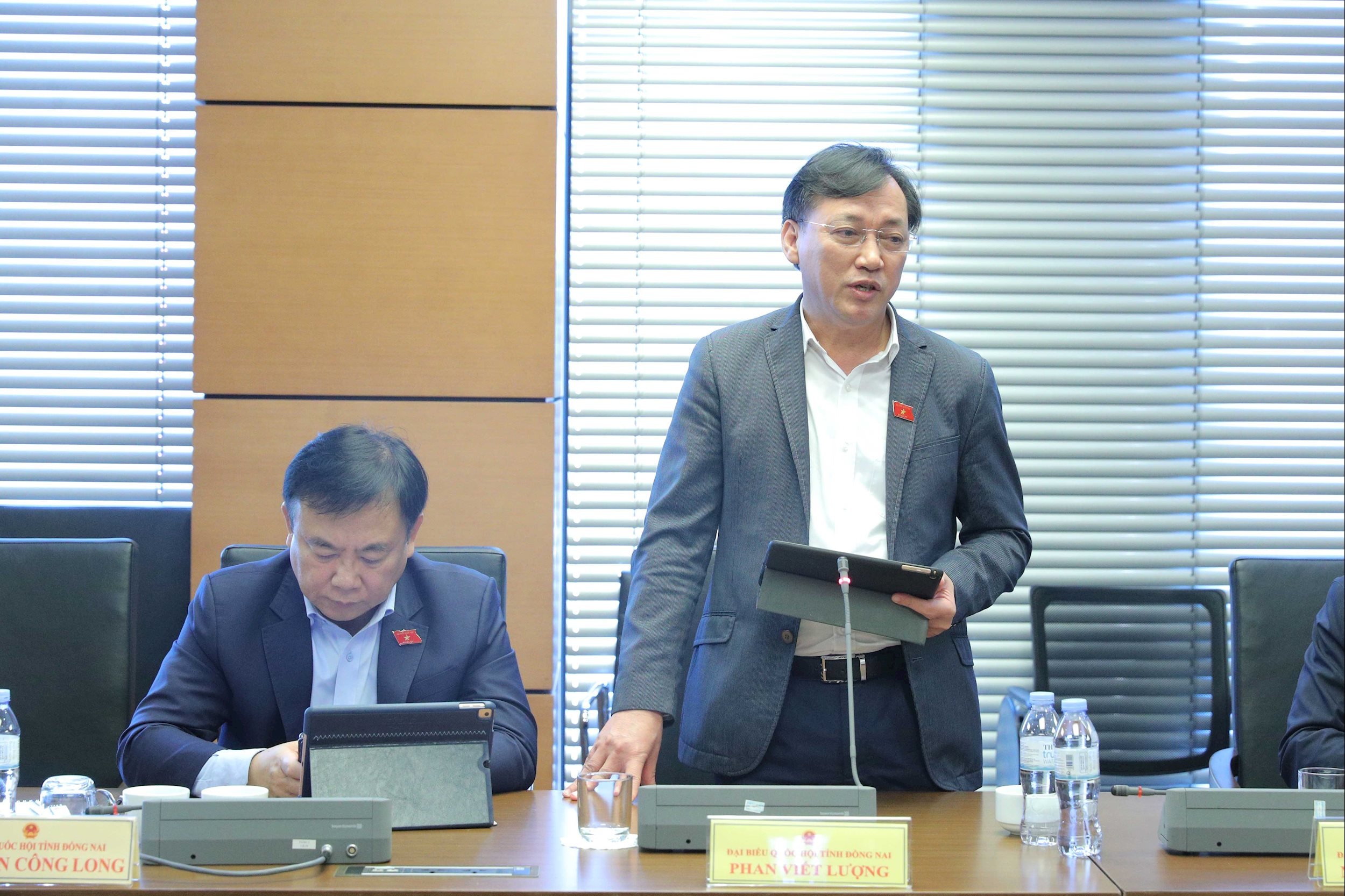
The delegate raised the question: does the construction work mentioned have to be owned by the declarant or can it be located on someone else's land? Accordingly, the delegate suggested that the drafting agency review and revise this content to avoid overlap and ensure clarity in implementation.
Regarding the threshold for asset declaration, National Assembly member Phan Viet Luong agreed to raise the threshold from 50 million VND to 150 million VND to match the current income level. However, the delegate said that this threshold could still be considered for higher adjustment, because the income of many officials and party members is currently at 500 to 600 million VND per year, maintaining the threshold too low will be a formality and not reflect reality.
Referring to Article 40 of the draft Law on monitoring changes in assets and income, the delegate pointed out the unreasonableness between the two prescribed thresholds: on the one hand, the declarant must declare assets of 150 million VND or more; but on the other hand, only when detecting changes of 1 billion VND or more that have not been declared will they be required to verify and supplement information. According to the delegate, this regulation can lead to missing small but frequent changes, causing loopholes in control. He suggested that there should be a verification mechanism immediately when detecting undeclared assets from the threshold of 150 million VND, instead of waiting until the level of 1 billion VND to handle.
Regarding the application of technology in declaration management, National Assembly Deputy Phan Viet Luong emphasized that digital transformation is an inevitable trend, helping to reduce administrative procedures, save costs and increase transparency. However, the delegate commented that the provisions in Article 28 of the draft Law are still general, only stopping at the concepts of "promoting" and "strengthening", without specific quantification or roadmap. Therefore, it is recommended that the drafting agency study more specific regulations, such as the implementation of electronic declaration of assets and income, building a unified database for the convenience of declarants and control agencies, and at the same time helping to detect early signs of irregularities in income.
Source: https://daibieunhandan.vn/cu-the-hoa-cac-quy-dinh-ve-ke-khai-tai-san-de-phong-ngua-tham-nhung-tu-goc-10394465.html


![[Photo] Opening of the 14th Conference of the 13th Party Central Committee](https://vphoto.vietnam.vn/thumb/1200x675/vietnam/resource/IMAGE/2025/11/05/1762310995216_a5-bnd-5742-5255-jpg.webp)





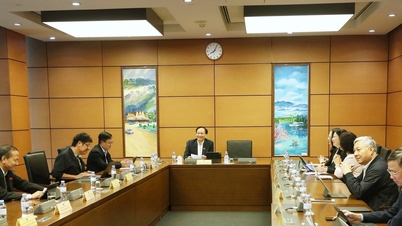




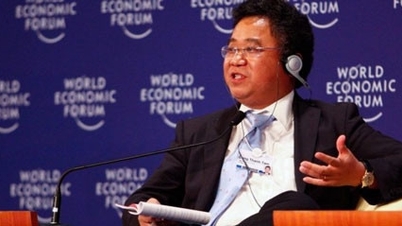

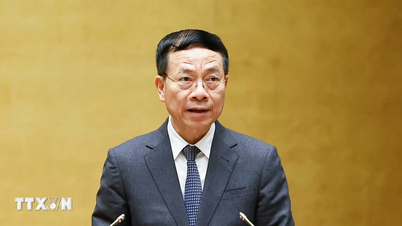




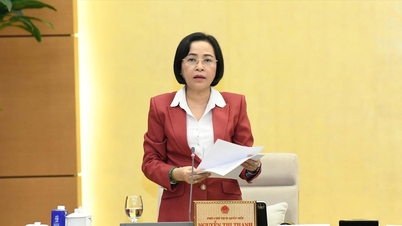
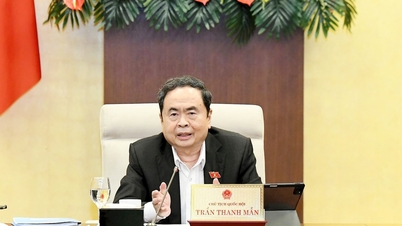







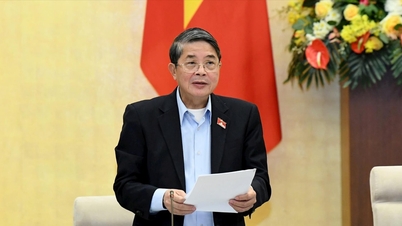

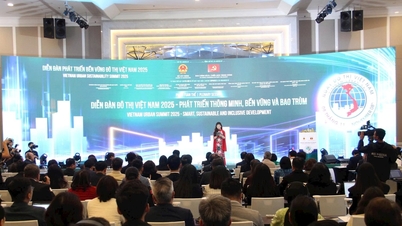
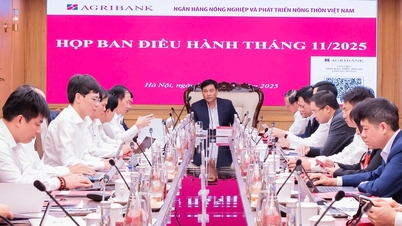



![[Photo] Panorama of the Patriotic Emulation Congress of Nhan Dan Newspaper for the period 2025-2030](https://vphoto.vietnam.vn/thumb/1200x675/vietnam/resource/IMAGE/2025/11/04/1762252775462_ndo_br_dhthiduayeuncbaond-6125-jpg.webp)






































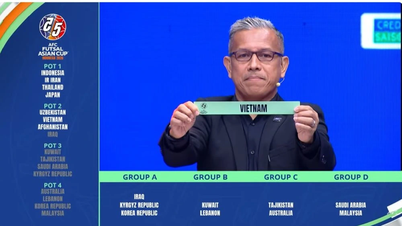







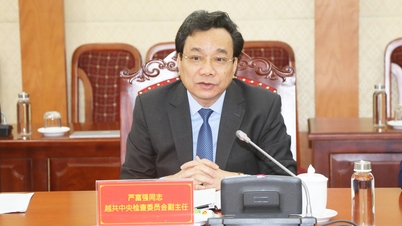




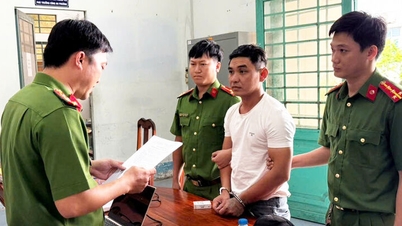



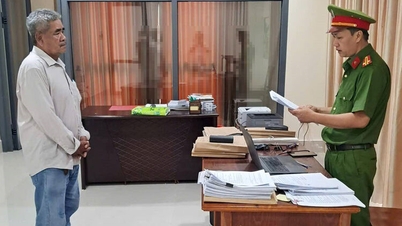

















Comment (0)